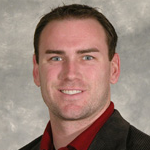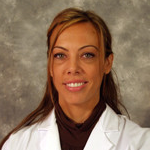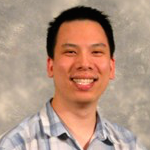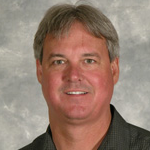As a leader within your professional organization, you'll have opportunities to improve healthcare for the benefit of your hospital, your patients and your colleagues everywhere. Perspectives recently sat down with four present and past directors of the
Society of Emergency Medicine Physician Assistants (SEMPA) to discuss the challenges and triumphs of professional leadership.
Perspectives: Welcome. Let's start with introductions.Fred: I'm Fred Wu, PA/NP site lead at Kaweah Delta Medical Center. This is my fourth year as a SEMPA director, and I'm currently secretary-treasurer of the board.
Tom: Tom Chambers, PA/NP site lead at Sutter Roseville Medical Center. I'm SEMPA's immediate past president of the board, and this is my fifth year as a board member.
Natalie: Natalie Schmitz here. I practice at Palomar Health in California. I was a SEMPA board member from 2010 to 2014, and I'm a former president of the board.
Dennis: I'm Dennis Tankersley, PA/NP site lead at Arrowhead Regional Medical Center and director of the EMPA Fellowship Program there. I just joined SEMPA's board in May 2015.
Perspectives: Tell us a little about your history with SEMPA. Tom: I was a founding member when SEMPA first organized in 1990, but I wasn't politically active at that time. Years later, when my kids were out of the house, I had more time to dedicate to the profession on a national basis. I ran for a director-at-large position and served for two years. Following my direct years I have served a presidential term, and I'm currently in the final year of my three-year term.
Natalie: I got to know some board members through SEMPA’s annual conference, and because of my passion for emergency medicine, I asked them how I could get more involved. As a result, they appointed me as a PA liaison to the American College of Emergency Physicians' (ACEP's) Public Health and Injury Prevention Committee. Later that year, they asked me if I was interested in running for a director-at-large position; and after a year on the Board I was asked to run for president of the board.
Dennis: A few years ago, I was invited to join SEMPA's newly formed Education and Curriculum for Residency/Fellowships Committee, or Postgraduate Committee for short. Through that work, I got to know many other program directors. Our committee chair, who was president elect at the time, encouraged me to run for a board position. In addition, I now chair the Postgraduate Committee.
Fred: I was actually SEMPA's first student director-at-large, but after I graduated, I took a few years off from the board. Tom and Natalie encouraged me to run again, and I went on to serve as director-at-large, vice president and now secretary-treasurer of the board. I also chair SEMPA's education committee, serve as conference chair of SEMPA 360 (SEMPA’s annual conference), sit on the Postgraduate Committee with Dennis, and sit on ACEP's Education Committee.
Perspectives: As an elected leader, what's been your platform?Fred: My niche in the PA world has always been education. I've been involved in EMS education all across the county, and I previously coordinated an interdisciplinary CME program at Kaweah Delta Medical Center. I’ve also had the opportunity to precept PA/NP students and orientate new hires at our site. As a board member, I'm very interested in helping EMPAs reach their full potential by providing high-quality workshops, events and experiences.
Natalie: Continuing education was a big part of my platform as well. PAs are trained as generalists, and traditionally, we've learned our specialty on the job. But lately we've seen a trend toward EMPAs working side-by-side with physicians to care for very acute patients. At many hospitals, EMPAs now run codes, put in central lines and practice at a very high level. So I think it's imperative for the good of the specialty, patients and our physician partners that we bring EMPA education into line with current practice. Additionally, forging new partnerships with integral medical and non-medical communities and organizations is key to sustained growth of SEMPA as well as the overall EM PA practice.
Dennis: Creating postgraduate education opportunities is also a big one for me. As director of a fellowship program, I'm a huge advocate for structured postgraduate training as well as developing uniform curriculum and educational standards.
Tom: When I joined the board, I felt that advocacy was the missing piece. With all of the changes happening in emergency medicine and PA practice, we need a unified voice to help steer the direction of our specialty at the local and national level. To achieve this, I felt that it was necessary for SEMPA to grow its membership and to partner with other professional organizations.
Perspectives: What has the board accomplished during your tenure?Fred: We're about to host our first
emergency medicine ultrasound course, which is pretty exciting. The Education Committee also plans our
annual conference SEMPA 360, which is always a personal highlight for me. It's rewarding to meet colleagues who are excited because one of our speakers or workshop really helped them. We’ve also enhanced member benefits by offering some of the best emergency medicine CME available.
Tom: We've worked very hard to build a relationship with ACEP, and that has opened advocacy channels nationwide. SEMPA members now sit on many ACEP committees, and we will soon have PA liaisons to many of the state ACEP chapters. SEMPA is a contributor to the Emergency Medicine Action Fund, an advocacy group concerned with steering changes with healthcare reform specific to emergency medicine. All of these efforts have increased our ability to influence the direction of emergency medicine.
Natalie: During my tenure as president, ACEP's management company also began managing SEMPA's business affairs, which was a big step forward for us. With their help, we did a huge internal restructuring and updated our policies and bylaws. During this time of top-down restructuring, we also developed a new vision and mission for the organization. Our initial foci included education, advocacy, and increasing our membership. We developed the foundation for these projects and Tom, Fred, and Dennis have done amazing work to potentiate growth in these areas.
Dennis: We also just wrapped up a multi-year project developing the first national guidelines for EMPA postgraduate programs. To accomplish this, we worked closely with ACEP and with most of the postgraduate program directors in the country.
Perspectives: What's the best thing about being a leader of your professional organization?Tom: Well, in March, I was the SEMPA delegate to a White House meeting on disaster response, which was definitely a high point. But in general, leadership gives you a chance to poke your head above the trenches of your everyday practice and get a national — and even international — perspective on the practice of emergency medicine. The other leadership involved at this level is exceptional. And, after 30 years of clinical practice, it's refreshing to also face new challenges.
Fred: The amount of talent on our board is really unbelievable, and just to be in that environment is energizing. I always joke when I'm headed to one of our in-person meetings that it's a great time for me to see all of my best friends.
Natalie: I agree, as a director, it's exciting to work with intelligent, innovative PAs and physicians from across the country. And in just a few years, we've seen real results from our efforts. It takes a while sometimes, but things really do change before your eyes. I think involvement nationally also benefits one’s local work environment. I’ve taken ideas and innovations back to my site and have been able to make great changes and create growth opportunities within my workplace.
Dennis: For me, it's been heartening to see the thoughtfulness and care with which the board members do their jobs. I feel lucky that we have such a caring, conscientious group of people working to represent the best interests of all EMPAs.
Perspectives: Any advice for healthcare providers who'd like to step up their professional involvement?Dennis: Start by enrolling in your professional organization, if you haven't already. Even if you never take up a leadership role, you'll have new opportunities for networking and education that can accelerate your career.
Fred: If you want change, you have to get involved. And we really welcome new leaders, because they bring fresh ideas. You don't have to serve on the board of directors to make a difference. You can start with smaller roles and see if you enjoy them.
Natalie: Exactly. We always need help with committee work as well as liaisons to other organizations. In general, the PA group has so many skills and talents beyond being excellent clinicians that can be utilized in shaping the future of our profession.
Tom: Now is an important time to be involved. Speaking specifically of EMPAs, our profession is moving out of its infancy and into its teenage years, so there's a huge opportunity to shape what it's going to look like down the road. And given the challenges facing healthcare, all professionals need to participate in redesigning the system. We're at a crossroads in history where motivated leaders can make a difference.

























